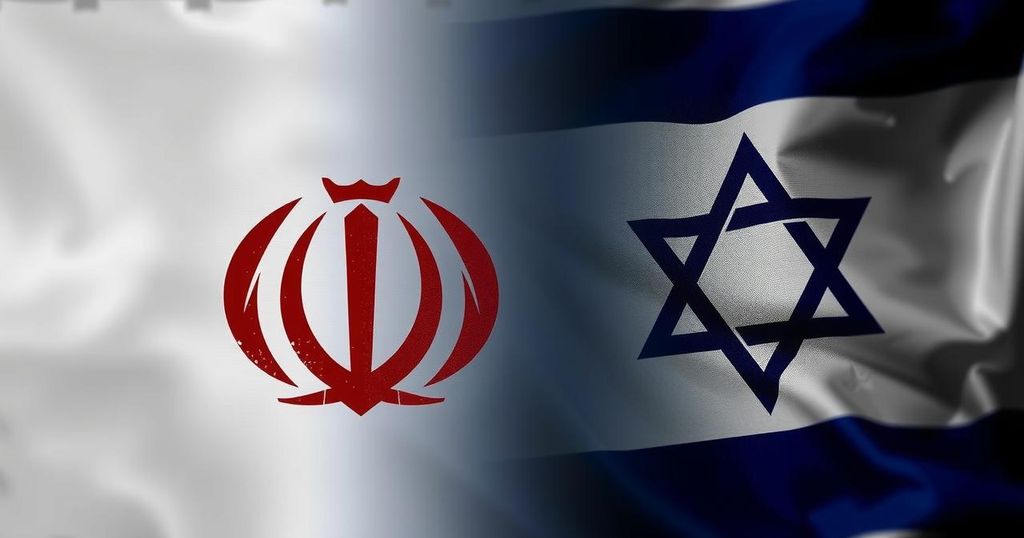Escalating Tensions in the Middle East: Iran Warns UN Amid Israeli Strikes in Lebanon

Iran has alerted the UN regarding Israeli threats to its nuclear sites amid escalating tensions following missile strikes on October 1. Concurrently, Israel has conducted military strikes in Lebanon, causing casualties and prompting international concern over the humanitarian crisis in Gaza, including plans for evacuating 1,000 Palestinians for medical care. The U.S. has also deployed the THAAD anti-missile system in Israel to bolster its defense against potential Iranian retaliation.
In recent developments in the Middle East, Iran has communicated concerns to the United Nations (UN) regarding Israeli threats against its nuclear facilities. The Iranian Foreign Ministry’s spokesperson, Esmaeil Baghaei, indicated during a weekly press conference that these threats contravene UN resolutions and are thus condemned. He further noted that a formal letter detailing Iran’s position had been sent to the UN nuclear watchdog, amidst escalating tensions resulting from Iranian missile strikes against Israel on October 1. Israel has signaled intentions to retaliate by potentially targeting Iranian nuclear sites. In parallel, Israeli military actions have intensified in Lebanon, where a recent airstrike inadvertently killed three Lebanese soldiers, as Israel clarified it was not engaged in combat with the Lebanese military but targeted Hezbollah assets instead. This incident followed Hezbollah’s announcement of a new phase in its confrontation with Israeli forces. Moreover, the humanitarian situation is dire in Gaza. The World Health Organization plans to evacuate up to 1,000 Palestinian women and children requiring urgent medical care, while reports suggest the Israeli campaign has led to significant civilian casualties and widespread displacement. Amidst these hostilities, the United States has deployed the THAAD anti-missile system in Israel as a precautionary measure against potential Iranian aggression. Secretary of Defense Lloyd Austin confirmed that this advanced defense system is now operational, reinforcing Israel’s existing military capabilities. Reports indicate that Israel has continued its aerial campaign against Hezbollah in Lebanon, further complicating the regional conflict as US envoy Amos Hochstein engages in negotiations for a ceasefire.
The ongoing conflict in the Middle East involves complex geopolitical dynamics, particularly between Iran and Israel. Iran’s concerns about its nuclear program have been a longstanding issue, with Israel often expressing fears regarding Iranian missiles potentially targeting its nuclear assets. The recent exchange of hostilities marks a significant escalation, with Iranian missile launches prompting Israeli threats of retaliation. In Lebanon, Hezbollah’s involvement adds another layer of tension, as its skirmishes with Israeli forces lead to casualties on both sides. The humanitarian crisis, particularly in Gaza, calls for urgent international attention, while the involvement of the United States aims to stabilize the situation through military support and diplomatic efforts.
The situation in the Middle East remains critical as tensions between Iran and Israel escalate alongside the humanitarian crisis in Gaza and Lebanon. Iran has formally addressed its concerns to the UN regarding Israel’s threats to its nuclear facilities, while Israel’s military actions have inadvertently affected the Lebanese military and targeted Hezbollah assets. The humanitarian situation in Gaza necessitates urgent medical evacuations as civilian casualties mount. Meanwhile, the deployment of the THAAD system by the United States underscores the ongoing geopolitical stakes and the need for diplomatic engagement to mitigate potential conflict.
Original Source: www.theguardian.com








